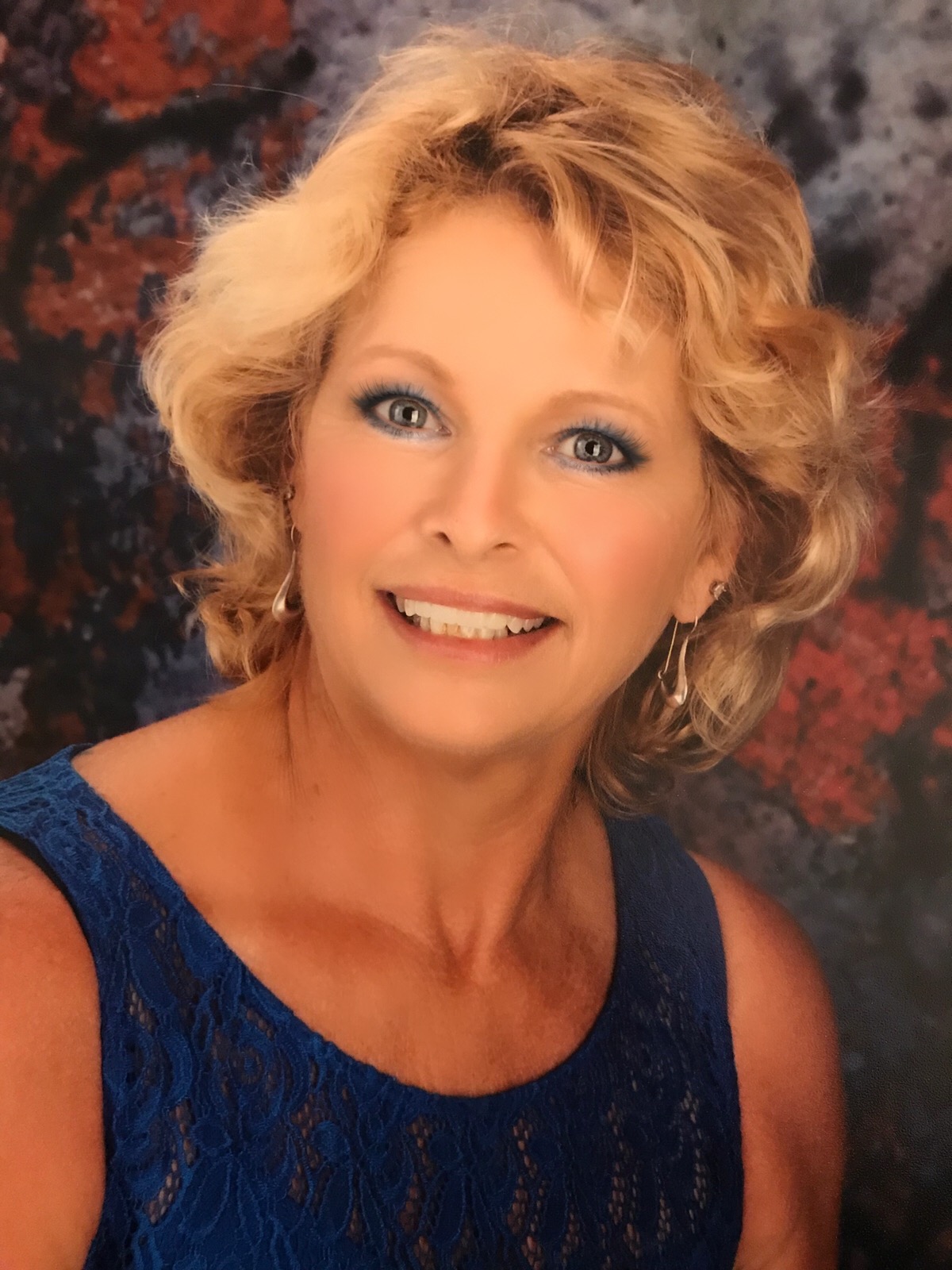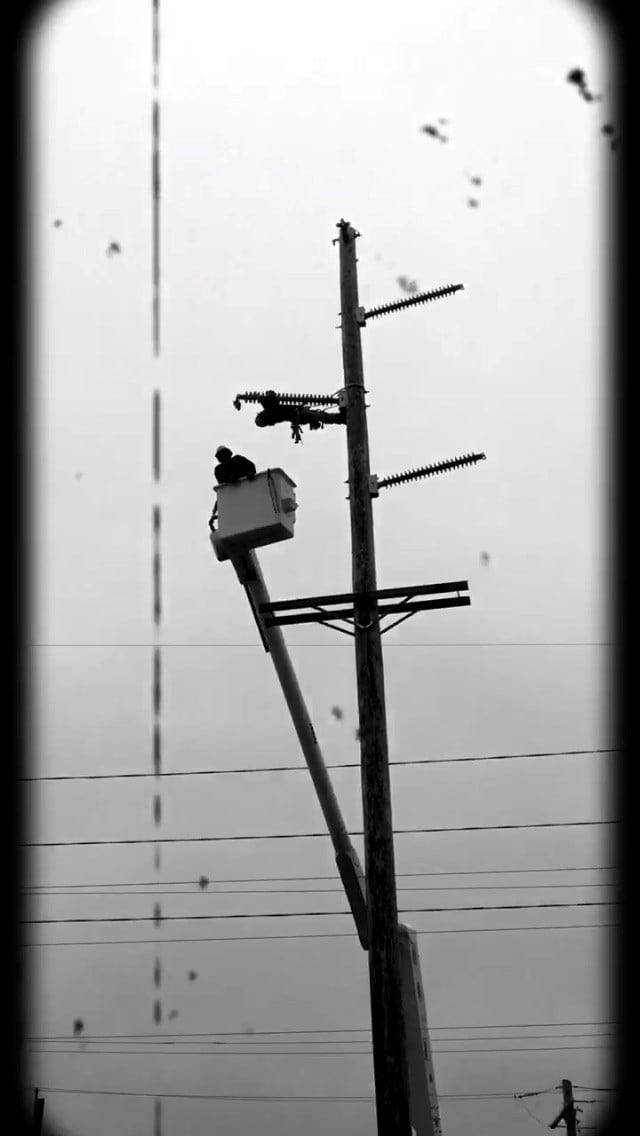You have /5 articles left.
Sign up for a free account or log in.

Former MCC student lineman Randi Blaser
Metropolitan Community College
There was not a single woman who climbed poles and repaired electric lines in Missouri until Susan Blaser became a journeyman line worker with Kansas City Power and Light in 1992.
Nearly 30 years later, there still are few women line workers in Missouri and across the country, but Blaser, the lead instructor of Metropolitan Community College’s electric utility line technician program, is trying to change this by encouraging more women to consider entering the profession.
Students can earn an associate degree or certificate through the program, which prepares them for careers as meter readers, utility workers, linemen and wind technicians. The certificate program can be completed in three semesters and the associate degree in four semesters.
“I realized that this was a career opportunity that females could do,” Blaser said. 
Although electrical line work continues to be viewed as a “man’s field,” Blaser developed the line tech program at Metropolitan with an eye toward recruiting more women. She started her career as a meter reader for the Kansas City utility company and became an apprentice in line work in 1989. Blaser spent 10 years working in the field and eventually also started training apprentices.
Blaser said the death of her father caused her to re-evaluate her career goals -- she decided she wanted to educate and train future line workers. She began coordinating the line technician program at MCC in 2008 -- one year after the two-year degree program started at the college. Blaser, who had developed the apprenticeship program at Kansas City Power and Light, modeled the curriculum for MCC's program on a first-year apprenticeship.
“My goal was to target females and minorities and bring them over to the program so they could have the same opportunity I got,” she said, noting that women are currently only 9 percent of the industry.
There are significant gender gaps in earnings for careers that require certificates, industry certifications and occupational licenses. Male-dominated occupations such as construction, repair services, engineering and computing, a category which line work falls under, have higher earning levels than female-dominated fields such as health care, education and administrative support.
A New America report released earlier this year showed that 25 percent of workers with a certificate in construction, installation and repair fields made between $50,000 and $75,000 a year, and 13 percent made more than $75,000 a year. Meanwhile, only 7 percent of workers with a certificate in a health-care field made between $50,000 and $75,000 a year, and just 5 percent made more than $75,000 a year. Women comprise 84 percent of health-care workers, while 96 percent of workers in construction and repair occupations are men.
When women are employed in these male-dominated professions, the pay gaps are smaller and are similar to gender pay gaps across all occupations, Mary Alice McCarthy, director of the Center on Education and Skills in the education policy program at New America, said in an email.
“That’s likely due to the effect of union contracts, which provide some wage equality and protection for women,” McCarthy said.
Line workers who start their careers in a union apprenticeship can make between $28 and $32 an hour and receive a wage raise about every six months, Blaser said. Apprenticeships last about three to five years.
A journeyman line worker can make about $45 an hour, she said.
Blaser said her daughter, Randi, who went through the program at Metropolitan, is employed as a line worker by Ameren, an Illinois electric company, and is on track to earn $100,000 in her first year on the job.
There’s also a growing demand for more skilled workers to become line technicians.
In the next three years, about 15 percent of the lineman industry, which is about 15,000 employees nationally, will be eligible for retirement, Blaser said.
“My program can only make 40 students a year,” she said. “That’s hard to keep up when you got several thousand a year retiring.”
There are a few federal initiatives that focus on increasing women's access to male-dominated fields. One initiative that does this is the Women in Apprenticeship and Nontraditional Occupations grant program from the U.S. Department of Labor. Grants have been awarded to nonprofit organizations that work in specific industries such as the Chicago Women in Trades and Oregon Tradeswomen Incorporated, Katie Spiker, senior federal policy analyst with the National Skills Coalition, said in an email.
But Spiker said more could be done to encourage women to pursue these fields.
"Federal policy should also make childcare more affordable, improve access to transportation for workers to get from their home to work to school or help them afford steel-toe boots or a set of tools for the first day of work," she said.
Blaser also tries to encourage women to consider line work by not only promoting the wages but pointing out that after line workers put in a hard day of work, they can go home and enjoy spending time with their families.
"It's not like I can take my work home at 4 p.m.," she said.
Blaser’s own family is full of line workers. In addition to her daughter, her husband is in the profession, as is her son, who also went through Metropolitan’s program. Blaser’s daughter is now the second female line worker employed at Ameren. The first female line worker was Jodie Reinhart, who was also trained by Blaser at MCC.
“Susan wasn’t easy, and I had to earn her respect,” Reinhart said. “She told me, if you want to do this you have to be tough, and I understand why she was tough on me now.”
Reinhart was 38 when she enrolled in Blaser’s class and had her own challenges as an adult student who was also working for a Walmart distribution center at the same time she attended the college. But after Kansas City Power and Light turned down her initial application, Reinhart said, she was determined to become a lineman.
“People are always pretty amazed that this is what I do,” Reinhart said. “People ask me, ‘Are you a linewoman?’ I say, no, I work hard to be a lineman.”
Still, encouraging women to pursue a career as a line worker isn’t easy. 
“Getting females is difficult,” Blaser said. “One good year, I had three. I typically get one to two women a year.”
Blaser said she’s also been able to encourage more men of color to join the program. It's the women, though, who tend to have more concerns about what they perceive they can do as a line worker. Some women assume they can’t do the work because they’re a certain height or weight, she said.
“Even with men, I’m going to teach them how to rig and work smart and work hard,” Blaser said. “That was taught to me when I went through my apprenticeship. I didn’t have the man strength, but I had the woman’s wisdom to learn how to do it right.”
Jacqueline Gill, president of the MCC Blue River and MCC Business and Technology campuses, said Blaser’s presence is the institution's best recruiting tool.
“Encouraging young women and people of color is a possibility,” Gill said. “We know they must see themselves in that position. When they see someone like Susan, she’s our best marketing tool.”
Blaser said few women even consider line work a career possibility, because they aren’t encouraged by their parents or high school counselors. When she visits high schools, she finds that most teachers and counselors don’t promote skilled trades or utility work. Instead, Blaser reaches out to high school athletic coaches to help pass the word along. She also visits high schools to promote Metropolitan's program and encourages principals to guide qualified students to the program.
Blaser said word of mouth is the best way potential students learn about her program.
High school coaches know the women who want to do more “hands-on” or physical work and don’t plan to spend years earning multiple degrees at a university, she said. “They’re probably one of my biggest sponsors.”
It’s not always easy for a woman to enter a workspace that has been and continues to be dominated by men. When Blaser started her career, she adapted to working with men who felt she didn’t belong in the field -- and they learned to adapt to her presence, she said.
“I was the 13th female to attempt an apprenticeship at Kansas City Power and Light,” Blaser said. “All the others had failed, so there wasn’t a good track record. There were people there who didn’t want me there, and they were explicit … some of the old guys gave me grief.”
A male co-worker once even slipped a sexist letter in her personnel file. The letter read that she "should be home cooking brownies and taking care of my kids. Not doing line work," she said.
Blaser used humor to deal with the men who didn’t want her around. But she wasn't all smiles; she made a point of holding her ground by dyeing her work gloves and bags pink to signal that women could do the work. She proudly notes that she’s never had an accident in her entire time on the job.
Blaser said she tells the women in her class to have a good attitude, roll with the punches and not to take comments or jokes co-workers make about their gender personally. She said male line techs have become more accepting of women co-workers over the years.
“I had to prove to these guys I could do this,” Reinhart said. “I told them I didn’t want no special treatment. I’m a lineman just like the guys. I want to do what you’re doing.”
She said some male students enter her class convinced they’re better than any female student or student of color.
“I don’t get a lot of those, and to me, that’s how they were raised,” she said. “I'm not going to change that attitude.”
Most male students see Blaser leading the program and gain a respect for women in the industry, Gill said.
Blaser has also been invited to other lineman training programs to talk to male students about how to interact with women in the workplace.
Despite their small numbers, there is a community of women line workers online and on social media, such as the Women in Linework Facebook page, where they share information and support each other.
“There are more and more women doing it, and that’s kind of exciting,” Reinhart said. “I don’t think it’s for every woman, and it’s not for every man. You can’t get in it just for the money. You have to love what you’re doing, because there are days when it’s snowing, raining, ice coming at you, and you have to be out there in it and fixing the power.”








